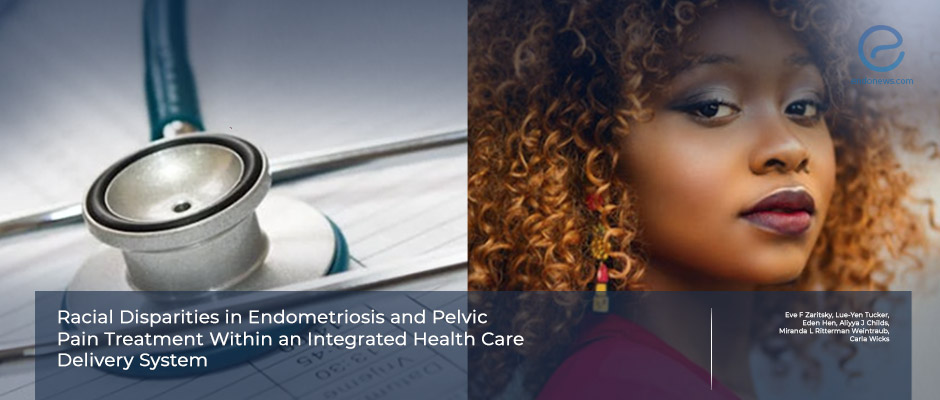Fewer Non-White Women Are Referred to a Pelvic Pain Specialist
Sep 24, 2025
Non-White Women Receive Less Access to Pelvic Pain Specialists
Key Points
Highlights:
- Black women with endometriosis and pelvic pain disorders received more hormonal therapy, pain medication, and surgical treatment compared with non-Black women.
- Despite higher treatment rates, Black women and other non-White women had the lowest referral rates to pelvic pain specialists.
- Racial and ethnic disparities in care pathways remain evident even within an integrated health care delivery system.
Importance:
- Ensuring equitable referral practices is critical to improving outcomes for women with endometriosis and pelvic pain across diverse populations.
What’s done here:
- This article represents a retrospective cohort study from Kaiser Permanente East Bay, Oakland of Northern California.
- 15,164 adult women with a pelvic pain disorder, including endometriosis, between 2012 and 2019, were evaluated.
- Demographic, clinical, and treatment characteristics were compared across racial and ethnic groups.
Key results:
- 56.2% of Black women received hormonal therapy compared to 51.9% of non-Black women statistically significant.
- 55.4% of Black women received pain medications compared to 44.7% of non-Black women, statistically significant.
- 25.5% of Black women underwent surgery compared to 23% of non-Black women, statistically significant.
- 14.9% of non-White women were referred to a pelvic pain specialist compared to 18.4% of White women.
Limitations:
- Retrospective design that limits ability to establish causality and the reliance on EHR coding which may not fully capture disease severity or symptom burden.
From the Editor-in-Chief – EndoNews
"This study sheds light on a paradox in care delivery: Black women with pelvic pain disorders received more medical and surgical treatments than their non-Black counterparts, yet they were less often referred to pelvic pain specialists. Such referral gaps may reflect systemic inequities in access to comprehensive care, even within integrated health systems. Future work should focus on understanding why these disparities persist and how targeted interventions can ensure that all women, regardless of race or ethnicity, receive equitable specialist evaluation and management."
Lay Summary
Black women with endometriosis receive more hormonal treatment, pain medication, and surgical treatment compared to non-Black women, found a new study conducted using data from an integrated health care system.
However, the rate of referral to a pelvic pain specialist was lower among all women who were not White.
This, the authors of the study said, underscores “the need to better understand care allocation”.
To evaluate racial disparities in endometriosis management, a team of researchers from the Department of Obstetrics and Gynecology and the Department of Graduate Medical Education, Kaiser Permanente East Bay in Oakland, and the Division of Research, Kaiser Permanente Northern California in Pleasanton, California led by Dr. Carla Wicks conducted a retrospective cohort study in 15,164 adult women with a pelvic pain disorder between 2012 and 2019.
These included endometriosis, pelvic pain, period pain, and painful intercourse.
Of these 15,164 women, the majority (88.7%) were non-Black, while 11.3% were Black.
Of the non-Black women, 44.4% were White, 24.8% were Hispanic, 13.8% were Asian, and 5.7% were from other or unknown ethnic backgrounds.
When they compared the Black and non-Black women, the researchers found that the Black women were younger, with a median age of 36 compared to 37 in non-Black women.
Black women also had a higher median body mass index at 29.8 compared to 26 in non-Black women
Balck and non-Black women had had a similar number of pregnancies.
Importantly, more Black women received hormonal therapy, pain medications, and surgical treatment compared to non-Black women to manage their condition.
However, when they analyzed all non-White women, the researchers found that a smaller proportion of them were referred to a pelvic pain specialist compared to White women.
The referral rate of Black women was the lowest at 14.9% compared to 18.4% in White women.
The study, published in Obstetrics & Gynecology highlights persistent inequities in specialist access and calls for strategies to ensure more equitable care for all women with endometriosis and pelvic pain.
Research Source: https://pubmed.ncbi.nlm.nih.gov/40839882/
gender disparity pelvic pain dysmenorrhea dyspareunia menstrual pain period pain painful intercourse hormonal treatment pain medication painkiller surgery

